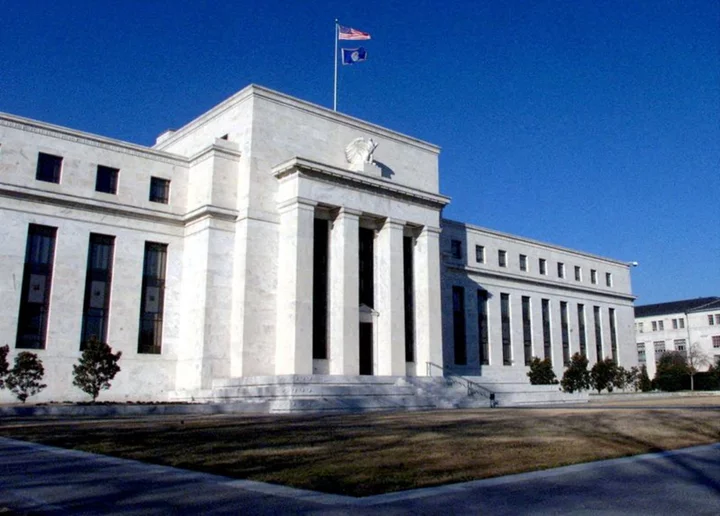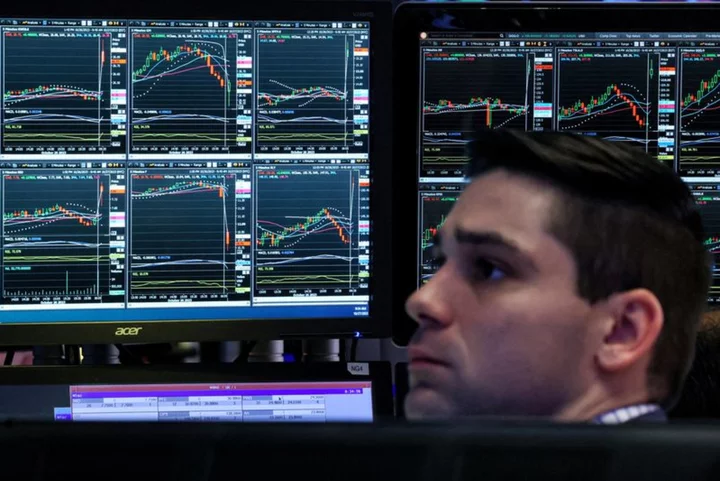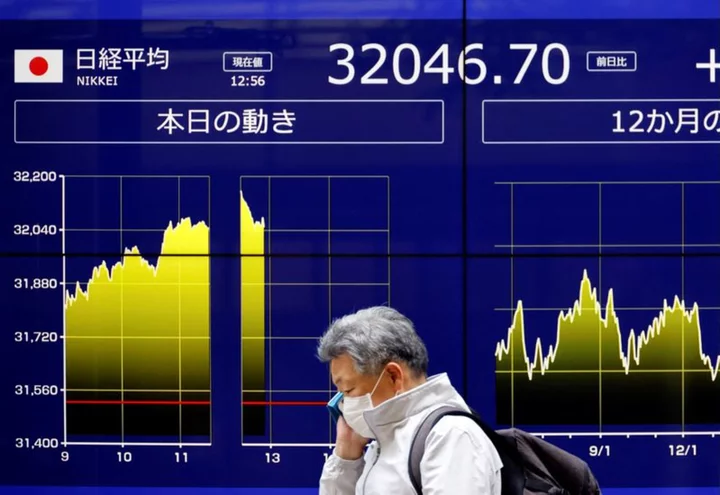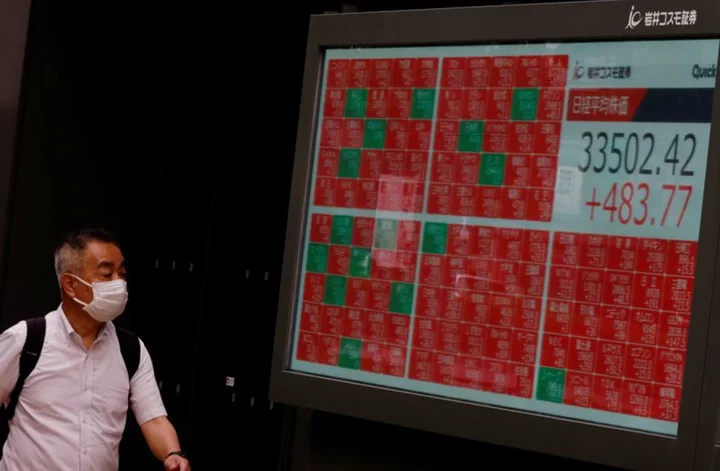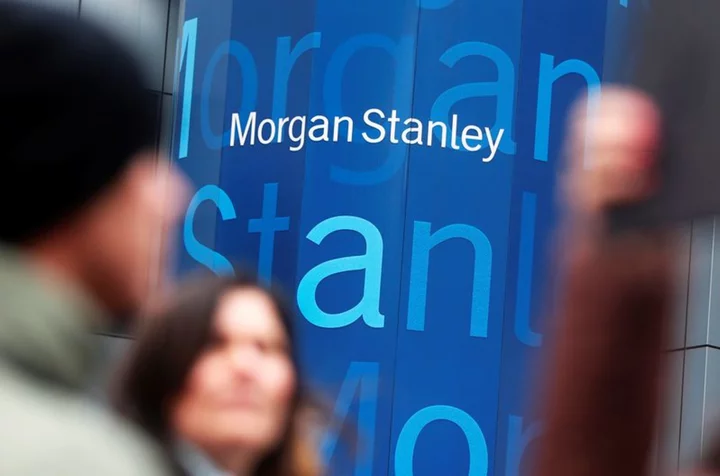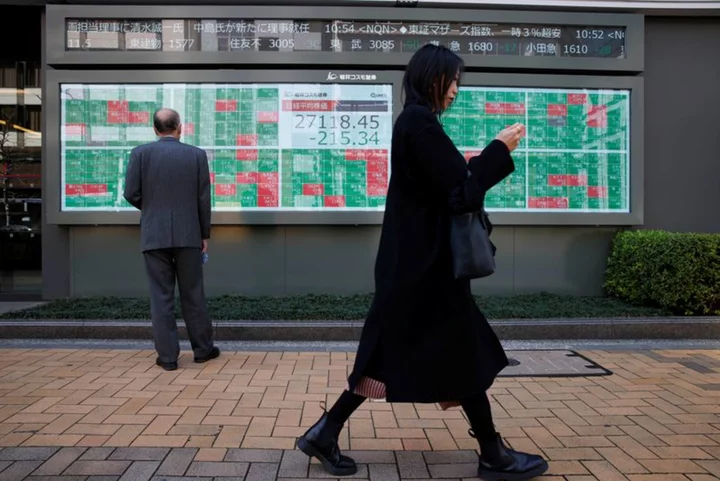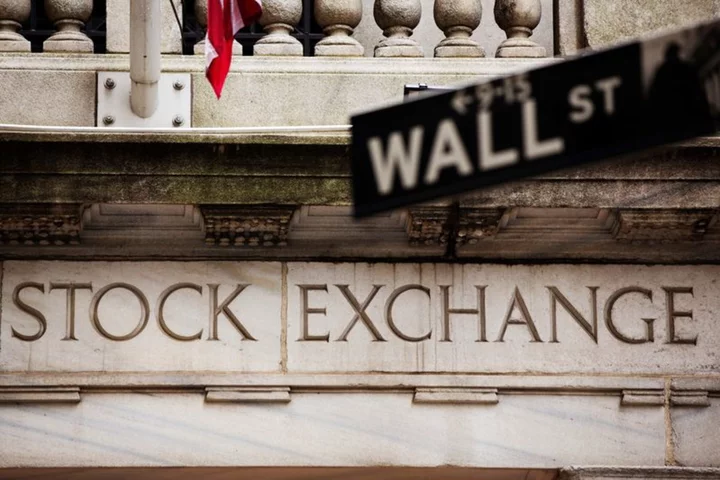Central banks take centre stage with five of those overseeing the 10 most heavily traded currencies - including the U.S. Federal Reserve - holding rate-setting meetings, plus a swathe of emerging market ones as well.
Here's your week ahead in markets from Lewis Krauskopf in New York, Kevin Buckland in Tokyo, Amanda Cooper, Naomi Rovnick and Karin Strohecker in London.
1/ AND NEXT UP
The ECB just signalled an end to its aggressive rate hikes, cheering markets. Now it's the turn of the world's most important central bank.
The Fed is widely expected to leave its key rate in a 5.25-5.50% range when it concludes a meeting on Wednesday. Latest inflation numbers were slightly stronger than expected, but that has done little to bolster the case for an imminent rate increase.
Whether it's the United States or Europe, investors suspect this global rate tightening cycle is nearing an end. That doesn't mean worries about potentially sticky inflation will keep rates higher for longer. And a hawkish tone from Fed chief Jerome Powell could keep Treasury yields elevated, dulling the allure of stocks further but supporting the dollar.
2/ SUPER THURSDAY
Interest rate decisions in the UK, Scandinavia and Switzerland will give clues on whether these northern European economies can withstand any more monetary tightening.
Sweden's Riksbank is seen hiking by 25 basis points to 4%, despite mounting economic pain with output shrinking, a weak currency and above-target inflation despite a decline to 4.7% in August.
Also on Thursday, the Bank of England is tipped to hike for the 15th consecutive meeting, taking benchmark borrowing costs to 5.5%. Even as headline inflation falls as home prices drop, a significant minority of economists expect a further hike this year.
Norway's central bank is also expected to nudge benchmark borrowing costs higher, following a 25 bps rise in August to 4%. Money market bets on whether Switzerland will raise, or hold at 1.75%, are evenly split.
3/ UDEDA'S INNER HAWK Recent comments by Bank of Japan Governor Kazuo Ueda set a fire under Japan's government bond market, sending benchmark yields soaring above 0.7% for the first time in almost a decade. The spark was a sudden hawkish tilt: Only weeks after doubling the 10-year yield ceiling to 1%, Ueda was talking about the possible end of negative short-term rates by year-end. The BOJ policy decision and news conference on Sept. 22 has become crucial: first, to find out if another policy tweak is underway, and then, to see whether Ueda clarifies his position after judging the market's reaction. Some surprised BOJ watchers hypothesise that his shift was brought about by the yen's slide to a 10-month trough at 147.875 per dollar, which started to worry Japan's Ministry of Finance. But deeds rather than words may be necessary to halt the decline: After a rebound, the yen is back languishing around 147.30.
4/ DIVERGING TRAJECTORIES
The push and pull factors on central banks are nowhere more visible than in emerging markets.
Much of Latin America, which delivered quick and big on hikes in the last tightening cycle, is now firmly in easing mode. Brazil's policy-makers meeting on Wednesday are expected to stick to their pledge of 50 bps-per-meeting cuts to reduce the benchmark currently at 13.25%.
But for Turkey's central bank, convening on Thursday, the only way is up. Grappling to put monetary policy back on an orthodox track after years of President Tayyip Erdogan pushing for lower rates despite soaring inflation, analysts see policy- makers lifting the benchmark to 35% by year-end from 25% now.
South Africa will keep rates steady at 8.25% at its Thursday meeting to curb the impact of fuel price inflation. Egypt and Taiwan central banks meet the same day.
5/ IT WAS GOING SO WELL
August was the month Europe's consumers finally caved.
The services sector fell into contraction for the first time this year, compared with 13 straight months of shrinking activity for manufacturing. One sub-50 reading doesn't scream disaster, but the downturn was much deeper than many anticipated. It sounded alarm bells, knocking as much as 1% off the euro at one point on the day of release.
Activity across the broader economy has withered and economists believe a euro zone recession is rapidly becoming inevitable, particularly given deteriorating business activity.
There is hope, however, that the factory sector might be past the worst of the downturn, and flash Purchasing Manager Index surveys on Sept. 22 may confirm that. But with consumers feeling the pain of high interest rates and inflation, recovery in Europe's services sector might be a more distant prospect.
(Compiled by Karin Strohecker; editing by Mark Heinrich)

